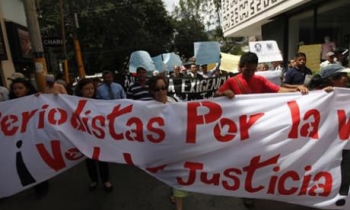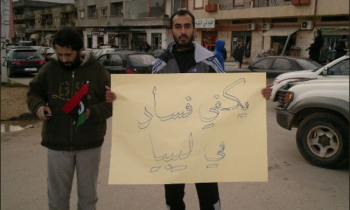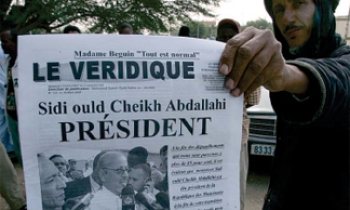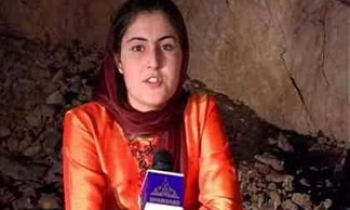KATHMANDU: The Nepalese media that was vibrant and proud even during 14 months of King Gyanendra's absolute rule is today hanging down its head in shame amid reports that journalists received money from the Royal government.
The Nepalese government revealed that about 90 journalists affiliated with various news media received money during the period of royal direct rule to "write about the peace process." About 20 other media-related organisations were also given financial assistance.
The list of those receiving money was published in the state-run Nepali-language daily Gorkhapatra, and the amounts given to most of the journalists was so paltry that it need not have created the furore that it did. The amounts were small fractions of what journalists get paid in the more-prosperous media houses.
"The amounts were doled out probably during the Hindu festival of Dasain around October last year, and this kind of practice has going on for years," said veteran journalist P Kharel. "It is nothing new."
True as that may be, the new Seven-Party Alliance government this week launched a probe into the manner in which the media functioned during King Gyanendra's rule by fiat.
Prateek Pradhan, editor of the Kathmandu Post that was highly critical of the king's rule, said, "The giving away of money to journalists for whatever reason was wrong."
It was not only individual journalists who received varying amounts of money through different government ministries during the king's rule. Significant amounts were given to pro-monarch media organisations, notably the National Journalists' Federation, a rival to the more popular Federation of Nepalese Journalists (FNJ).
The latter group itself was also alleged to have received money from the government prior to King Gyanendra's takeover in February 2005.
After the king's coup, the FNJ was alleged to have received substantial amounts under various pretexts from some Scandinavian countries. The federation denied the allegations.
Fresh allegations say that a journalism group linked to the communist United Marxist-Leninists, one of the main coalition partners in the new government, has received money from the state.
Government officials say the public funds are distributed by the government through various ministries and not only through the Information and Communications Ministry.
There are over 500 newspapers in Nepal but only about two dozen of them, including two in English language, are mainstream broadsheets. Most are run by either political parties or other pressure groups, which calls into question the credibility of the media.
Many Kathmandu newspapers, particularly weeklies, are calling on the government to publicise the names of all journalists and media organisations that received government money after the restoration of democracy 16 years ago in April 1990.
"Distribution of subsidies by the government to the media is not always a bad thing. It is the Swedish model of trying to encourage free and unbiased press," said Lal Deosa Rai, who has been teaching journalism at the country's Tribhuvan University for two decades.
"But the important thing is how the money is distributed and on what grounds. There must be a set of rules for fair distribution and the distribution of all government funds should be transparent."
He added, "You know how things are in Nepal: favourites get more and critics none at all."
An editor of a mainstream Nepali language daily who did not want to be identified said, "The government disclosures have shamed the media. They have come at a time when the people have a low opinion of journalists. The perception among the people that journalists are out to grab money and free trips has to be dispelled.
"Even as you would have been branded if you spoke against the king's government then, virtually the same applies now," he said. "And among some bad decisions taken by the new government, the selective disclosure of fund recipients is one of them."
The editor added that the media could not shirk its responsibility merely by saying that the journalists acted on their own.
"We obviously gave them reason to take money from the government. Today money taken from the government might be accounted for. But what happens when journalists resort to similar practices with big business and industrial houses?"
Though the Nepalese media today is proud that it helped end the king's direct rule, it will need to do more to win back the respect of the people.









